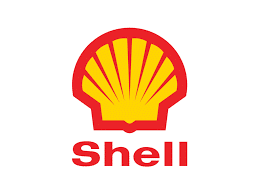In this blog post, we will dissect the business model of Shell using Alexander Osterwalder’s Business Model Canvas (BMC)
The Royal Dutch Shell Group, commonly known as Shell, is a global powerhouse in the energy sector, with a rich history that spans over a century. Founded in 1907, the company was established following the merger of Royal Dutch Petroleum Company of the Netherlands and Shell Transport and Trading Company of the United Kingdom. Royal Dutch Shell has its headquarters in The Hague, Netherlands, with its registered office in London, United Kingdom.
Shell’s establishment was primarily a strategic move to compete against the powerful American oil industry, notably Standard Oil, the oil monopoly owned by the legendary business magnate, John D. Rockefeller. The founders of Royal Dutch Shell, including Marcus Samuel, 1st Viscount Bearsted, and his brother Sam, foresaw the growing demand for kerosene and petroleum. They recognized an opportunity to revolutionize the energy sector and seized it by setting up a global oil company.
Osterwalder’s BMC provides a structured analysis of the key components that make up a business, helping us understand the intricate workings of a company. Here is a description of the Shell Business Model
- Customer Segments:
Shell’s customer segments are quite diversified, reaching various markets worldwide. Its customers include individual consumers, businesses of varying sizes, industries, and governments. Shell offers its products and services through its various divisions, such as Upstream, Integrated Gas, Downstream, and Projects & Technology.
- Value Propositions:
Shell offers numerous value propositions to its wide array of customer segments. Primarily, Shell provides reliable, affordable, and responsible energy solutions. It has a comprehensive range of products and services including natural gas, electricity, lubricants, and petrochemicals, to name a few.
With a strong commitment to sustainability, Shell is continuously innovating to provide cleaner energy solutions. Its investments in renewable energy, carbon capture and storage technologies, and electric vehicle charging infrastructure underscore this commitment.
- Channels:
Shell has an extensive global network that it uses to deliver its value propositions. This network includes production sites, refineries, depots, distribution networks, retail sites, and digital platforms. Shell operates in more than 70 countries and territories, with a network of more than 44,000 service stations worldwide.
- Customer Relationships:
Shell maintains strong relationships with its customer segments. For individual customers, Shell operates numerous service stations where customers can refuel their vehicles, purchase automotive products, and even shop for convenience items. Shell also offers loyalty programs, such as the Shell Go+ rewards, providing customers with benefits and discounts.
For businesses and industries, Shell offers customized energy solutions and services. It also provides technical and business services, assisting them to manage their energy needs efficiently and responsibly.
- Revenue Streams:
Shell’s primary revenue streams are derived from its diversified portfolio. Its upstream division focuses on the exploration for and extraction of crude oil, natural gas, and natural gas liquids. The downstream division is involved in refining, trading and supply, marketing, and pipelines.
Shell’s integrated gas division manages the liquefaction and transportation of natural gas, and the conversion of gas to liquids to provide cleaner-burning fuels. The Projects and Technology division manages delivery of Shell’s major projects and drives the research and innovation to create technology solutions.
- Key Resources:
Shell’s key resources include its reserves of oil and gas, physical infrastructure (like refineries and petrol stations), technology, and human resources. Its strong research and development capabilities are critical in driving innovation and maintaining competitiveness.
- Key Activities:
Shell’s key activities include exploration and production of oil and gas, refining, distribution, marketing, trading and supply, and research and development. These activities ensure Shell can provide a stable supply of energy products to meet global demand. Importantly, Shell is also focused on transitioning to a more sustainable energy future, with key activities in areas like renewable energy and carbon capture and storage.
- Key Partnerships:
Shell’s key partnerships are varied and strategic. They include joint ventures and alliances with other energy companies, collaborations with technology firms for research and development, partnerships with governments and regulatory bodies, and relationships with non-governmental organizations to support its sustainability and community initiatives.
An example of such a partnership is Shell’s alliance with ITM Power and Siemens. In this venture, the partners aim to develop integrated hydrogen projects, combining electrolysis with renewable power to produce sustainable hydrogen.
- Cost Structure:
Shell’s cost structure is influenced by a variety of factors, including the costs of exploration and production, refining and marketing, research and development, and administration. Other significant costs include capital expenditures for maintaining and expanding infrastructure, costs associated with compliance to environmental regulations, and costs related to its workforce.
The Shell Story: A Retrospective View
Marcus Samuel, the founder of Shell Transport and Trading, originally ran a small antique and sea shell business in London in the late 19th century. However, a visit to the Caspian Sea in the 1890s, where oil was beginning to be exploited, inspired him to think about the potential of the oil industry. Samuel saw the opportunity to create a better distribution system for oil and kerosene, which was in high demand for lighting across the globe.
The Samuel brothers commissioned the building of the first oil tanker ships that were designed to safely transport large quantities of oil in bulk. This innovation, coupled with strategic alliances and acquisitions, allowed the company to expand rapidly, making it one of the major players in the global oil industry.
In 1907, faced with intense competition from U.S. companies, Shell Transport and Trading merged with Royal Dutch Petroleum Company, forming what is now Royal Dutch Shell. The merger gave the company a global presence, with extensive oil reserves and a broad distribution network. This helped Shell weather various challenges over the years, including two world wars, numerous oil crises, and changing market dynamics.
Over the years, Shell has continuously evolved its business model to adapt to the changing world. The company has diversified its portfolio beyond oil, investing in natural gas, renewable energy sources, and new technologies. Today, Shell’s commitment to providing more and cleaner energy solutions is a testament to its ability to innovate and adapt, staying true to its founding vision while striving to meet the energy needs of the future.
Understanding the business model of Shell through the lens of Osterwalder’s Business Model Canvas reveals the complex interplay of elements that have contributed to the company’s success. From its humble beginnings in a small antique shop to its position as a leading player in the global energy sector, Shell’s journey offers valuable lessons in strategic vision, innovation, resilience, and adaptability.
As we move into a future where sustainability and clean energy will be paramount, Shell’s business model will undoubtedly continue to evolve. It’s a fascinating case study for entrepreneurs and business leaders, demonstrating how a company can navigate through complexities, challenges, and opportunities while staying committed to its core vision and values.
Did you know? Green Energy Startups like to use our coworking space in Bangalore
Learn more about our coworking space on our YouTube channel Work Theater Studios where we talk about a variety of topics including personal finance, entrepreneurship, business and life.
Did you know? We also have a private theatre in Bangalore.




